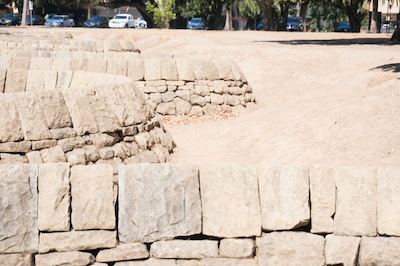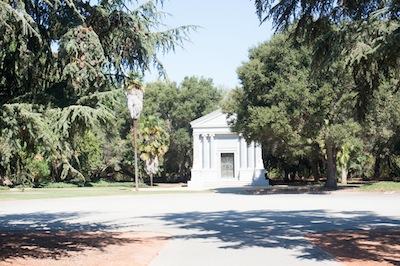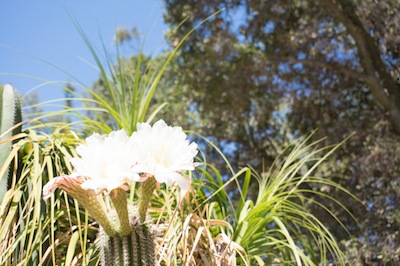My friend Paul wanted to explore the capabilities of his new camera. I suggested a walk around Stanford to get some practice. My plan was to take a set of photos, bring them home and enhance them, and then display both the original photo and the enhanced version on a web page.
Like everyone who takes pictures, I try to get the best possible image in the camera, and with a lot more practice, I'll get better at that. Recognizing that what looks "good" is a matter of taste, I enjoy the challenge of taking the image from my camera and making it look, to my eye at least, better.
The pictures on this page are all "as shot" on Friday morning, August 15, 2014. They were all shot in "Aperture" mode, using manual focus. Click on each photo to see the enhanced image in a pop-up window (900 pixels wide).

Shooting into the shadows around this oak required an exposure adjustment, which I further augmented while developing the image. Both exposure and clarity are adjusted in the final image.

Andy Goldsworthy's 320-foot sculpture, Stone River, is constructed entirely of sandstone pieces from campus buildings damaged in the 1906 and 1989 earthquakes. I focused on a small area, cropped the image and used both clarity and color saturation selectively to distinguish the wall from the ground on which it stands.

This photo of the Stanford Family Mausoleum was an experiment to see if I could read the inscription over the door; the result was a badly overexposed image. An exposure adjustment and some cropping produced a surprisingly vivid image, and, if you crop closely enough, you can read the names!

Located near the Mausoleum, this is the monument for Henry Lathrop, Jane Stanford's brother. I desaturated the background, used clarity to bring out details on the monument, and applied an "eraser" tool to clean up some spots on the base.

